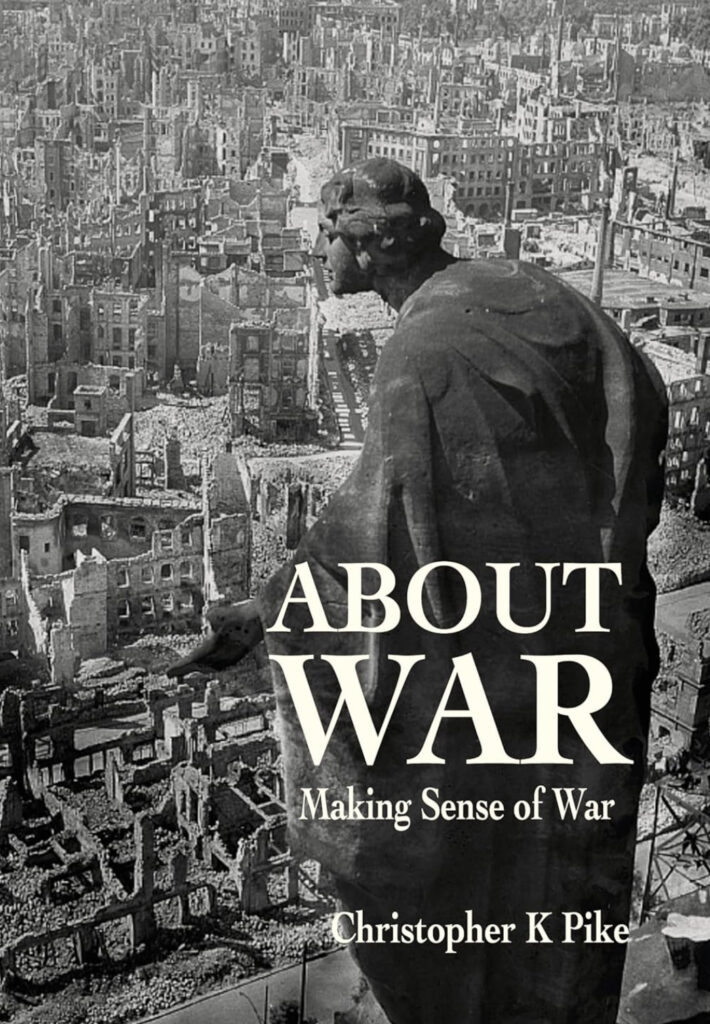War? What makes it happen? Why does it happen even though we know how destructive and devastating it is? The causes of war go back as far as mankind existing it seems…
About War – Making sense of war is the first of three in a series by Christopher K Pike and I was delighted to be asked to read and review it.
This post may contain affiliate links. If you click through and make a purchase, I earn a small about of commission. These links are marked with * for your reference.

“War, like death and taxes, seems eternal but is it inevitable? Do nations simply blunder into it? What is victory and how is it achieved?”
I was partly keen to read this book because I’m a home educator who is currently in the throes of GCSE history with my son and we’ve chosen a curriculum that covers both WW1 and WW2 and of course, everyone knows the horrors of those two wars, let alone all the other conflicts the world has faced and still faces. I felt like it might be helpful as we work through our history studies to have an outside perspective on war.
I will admit that I am also have a special interest in both World Wars and we all are fairly familiar with how both started and why, but the whole concept of war and the brutal destruction it brings and why we still seem to let them happen, is definitely something I’ve thought about before, as have many others.
This book delves into deeper than the facts we know about wars and how they have begun.
Some of it isn’t new, but the perspective and some of the deeper psychological aspects of what creates the “need” for war, and a deeper understanding of the underlying divides of man (I personally feel that women would be less inclined to solve all the worlds problems with guns/missiles/mass destruction of people and countries but maybe I’m wrong?) and what brings conflict.
Some of what he says may seem contradictory and controversial – he argues that Mutually Assured Destruction (MAD) – while a hideous concept – provides strategic stability.
He also looks into some of the ridiculous reasons for war and conflict, and I definitely finished this first book feeling like I know a bit more and have a better perspective.
This is definitely a refreshing but educational read. I look forward to reading his other work.
If teach history, or are simply interested in broadening your mind a little beyond the textbooks for some more insight then it’s definitely worth getting your hands* on a copy.